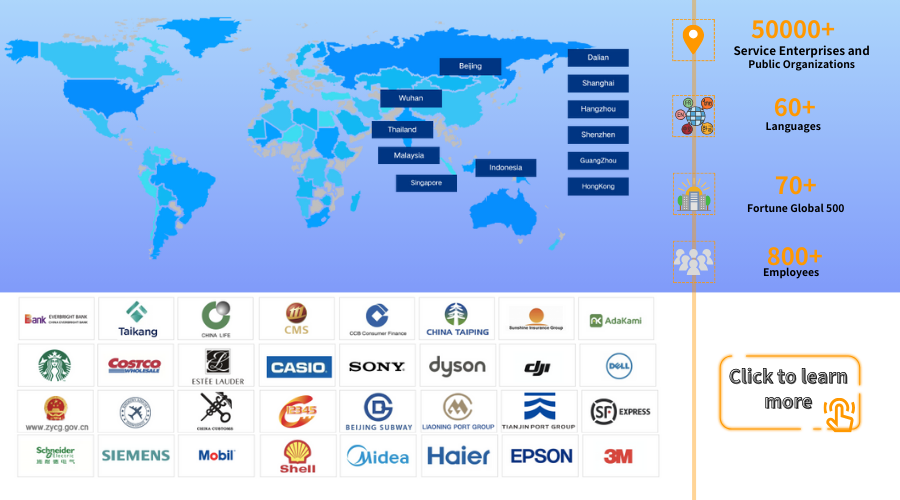Key Performance Indicators for Ticketing System
Article Summary:The ticketing system is an essential tool in enterprise customer service management. Monitoring and analyzing key performance indicators (KPIs) can help marketing professionals enhance customer satisfaction and service quality. This article will delve into the critical KPIs of ticketing systems, providing insights to leverage this tool effectively for enhancing customer experience.
Table of contents for this article
The ticketing system is an essential tool in enterprise customer service management. Monitoring and analyzing key performance indicators (KPIs) can help marketing professionals enhance customer satisfaction and service quality. This article will delve into the critical KPIs of ticketing systems, providing insights to leverage this tool effectively for enhancing customer experience.
Key Performance Indicators for Ticketing System

Response Time and Resolution Speed
These are the primary metrics for measuring the efficiency of a ticketing system, including First Response Time (FRT) and Mean Time to Resolution (MTTR). The First Response Time reflects the customer service team's attentiveness and timeliness in addressing customer issues, while the Mean Time to Resolution indicates the overall efficiency of ticket handling.
First Response Time (FRT): Shortening FRT is the first step in enhancing customer perception. This can be achieved by setting up instant messaging tools for automated responses and optimizing scheduling to ensure 24-hour coverage, ensuring that customers receive prompt feedback on their tickets.
Mean Time to Resolution (MTTR): Optimizing MTTR requires companies to not only improve processing speed but also focus on the quality of issue resolution, avoiding sacrificing service quality in pursuit of speed. By fostering cross-departmental collaboration and involving advanced technical support, companies can expedite the resolution process for complex tickets.
Customer Satisfaction
Customer satisfaction with the outcome of ticket handling is a direct indicator of the effectiveness of a ticketing system. Improving customer satisfaction helps companies build a positive reputation and attract more potential customers. Companies should proactively collect customer feedback through various channels such as online reviews, phone follow-ups, and email surveys to ensure the comprehensiveness and authenticity of the data. Specific measures include:
Establishing a diverse evaluation system: Design satisfaction survey questionnaires that encompass different dimensions, such as service attitude, professional competence, and issue resolution level, to fully understand customer needs and expectations.
Real-time monitoring and analysis: Utilize big data technology to conduct real-time analysis of collected data, swiftly identifying service shortcomings to provide a basis for subsequent optimization.
Closed-loop management mechanism: Implement closed-loop management for customer feedback, encompassing feedback collection, issue confirmation, solution formulation, final resolution, and follow-up, ensuring that every piece of customer feedback receives a response and resolution.
Service Efficiency
Service efficiency directly relates to a company's operational costs and service quality. Efficient service not only enhances the customer experience but also effectively controls resource consumption. Strategies for improving ticketing service efficiency include:
Intelligent ticket allocation: Utilizing advanced algorithms to automatically match the most suitable customer service personnel or teams to handle specific types of tickets, achieving optimal allocation based on historical data and skill proficiency.
Customer service training and motivation: Regularly conducting skills training and scenario simulation exercises for the customer service team to enhance their problem-solving capabilities and efficiency. Meanwhile, establishing a performance incentive mechanism to stimulate work enthusiasm.
Self-service platform construction: Developing a knowledge base, FAQ, and self-service tools to encourage and assist customers in solving common issues on their own, thereby alleviating the pressure on manual customer service and enhancing overall service efficiency.
Ticket Repetition Rate
A low ticket repetition rate is a sign of efficient operation in a customer service ticketing system. It means that issues are resolved thoroughly on the first attempt, reducing resource waste and customer dissatisfaction. To achieve a low ticket repetition rate, companies need to implement meticulous management of their ticketing system:
Root Cause Analysis: Conduct in-depth analysis of repeated ticket submissions to identify the underlying causes and take targeted measures to prevent similar issues from recurring.
Knowledge Base Updates: Ensure that customer service personnel have timely access to the latest and most accurate information and solutions. By continuously updating and enriching the knowledge base, the first-time resolution rate can be improved.
Customer Communication Skills Training: Strengthen the communication and problem understanding abilities of customer service personnel to ensure an accurate grasp of the core issues during initial contact, reducing misunderstandings and information asymmetry.
Practical Recommendations

- Data-Driven Decision Making: Regularly analyze key metrics of the customer service ticketing system to identify bottlenecks in the service process and make adjustments based on data.
- Personalized Service: Utilize CRM systems to integrate customer data and provide more personalized service solutions, enhancing the customer experience.
- Empowerment through Technology: Embrace new technologies such as AI and big data to enhance service intelligence. For example, use machine learning to predict customer issues and prepare solutions in advance.
- Continuous Monitoring of Key Metrics: Marketing personnel should regularly monitor metrics such as customer satisfaction, service efficiency, and problem resolution speed to promptly identify issues and develop improvement plans.
- Invest in Training Resources: Enhancing the professionalism and problem-solving capabilities of the customer service team can effectively improve service efficiency and problem resolution speed, thus enhancing customer satisfaction.
- Optimize Ticketing Processes: Streamline ticket processing workflows to improve efficiency while ensuring the quality of problem resolution, thereby raising overall service levels.
Udesk Intelligent Ticketing System
The Udesk Intelligent Ticketing System is a customer service ticket management system based on artificial intelligence technology. It provides comprehensive functionalities and tools such as intelligent allocation, knowledge base management, SLA management, and data analysis to help enterprises efficiently manage and process customer tickets, thereby enhancing the efficiency and service quality of the customer service team. If you are seeking a comprehensive ticket management solution, give the Udesk ticketing system a try!
》》Click to start your free trial of Ticketing System, and experience the advantages firsthand.
The article is original by Udesk, and when reprinted, the source must be indicated:https://www.udeskglobal.com/blog/key-performance-indicators-for-ticketing-system.html
Intelligent Ticketing Tool、Key Performance Indicators for Ticketing System、Ticketing System、

 Customer Service& Support Blog
Customer Service& Support Blog



